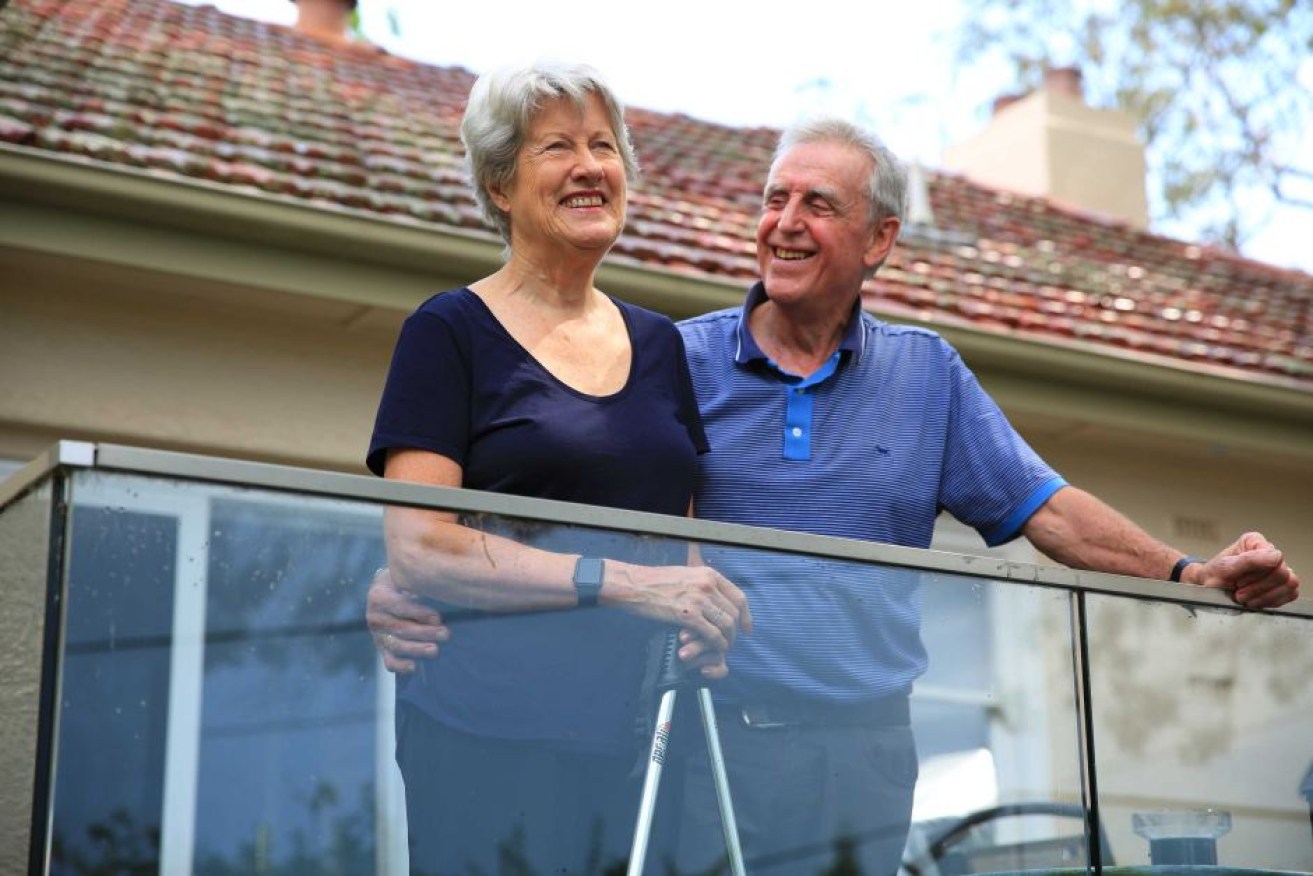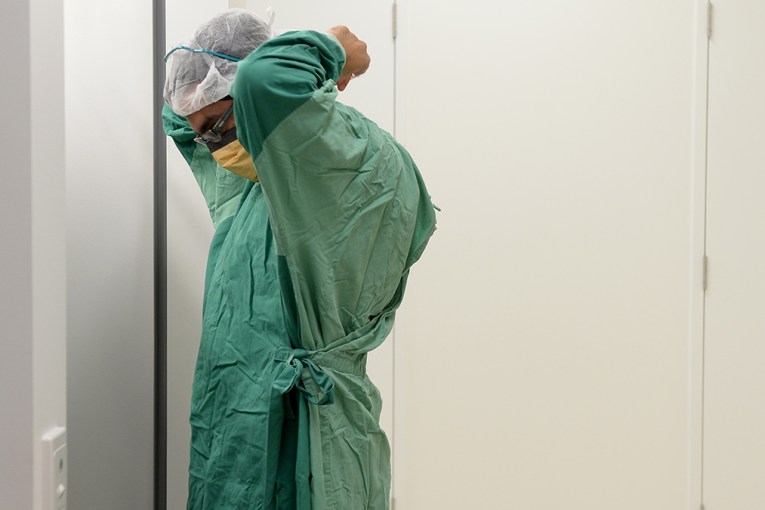Australian National University study turns multiple sclerosis patients into researchers

Vanessa Fanning, with her husband Bruce, was diagnosed with multiple sclerosis 20 years ago. Photo: ABC News
Vanessa Fanning was in her mid-forties when she suddenly went numb from the waist down.
“It was quite scary and confronting,” she said.
Soon after, she was diagnosed with multiple sclerosis (MS) – a disease that affects the central nervous system and consequently most functions of the mind and body.
Other symptoms she had suffered intermittently since her 20s, such as blurred vision and poor co-ordination, suddenly made sense.

Vanessa Fanning, once an avid bushwalker, uses crutches to move around her home. Photo: ABC News
“Being diagnosed with MS was very, very disconcerting,” she said.
“When you’re a highly independent person who’s strong, fit, healthy and active and whose favourite hobby is bushwalking, it has a huge effect.”
Twenty years later, Ms Fanning has signed up to a “groundbreaking study” which she hopes will give her back some of the control and independence the condition had taken away.
While she regained the feeling in her lower body, she never fully recovered and today uses two canes around the house as well as a mobility scooter for travelling long distances.
The Australian National University study was funded by MS Research Australia and is based on a new approach in letting the usual research subjects also become researchers, Ms Fanning explained.
It will combine the medical expertise of scientists with the real-life experience of people who live with MS, in the hope of finding better, more personalised treatment. It is also aimed at breaking down communication barriers between scientists and patients.
People from around Australia would be given wearable devices, participate in at-home tests and take part in regular workshops with the research team.
Ms Fanning said the need for personalised treatment was extremely important for a disease in which the pace of decline differs drastically between people – especially because it is not known why certain medications work for some people but not others.
She said it would benefit the research by involving people like herself, because often researchers had never even met someone with MS.
“There are things we know about our condition that scans can’t show,” Ms Fanning said.
“It is a very common story … a doctor will tell someone with MS that MRI scans show their condition hasn’t changed in 10 years, but they know their conditions and their symptoms have.”
Funding bodies not giving money unless patients involved in research
Lead researcher Jane Desborough said the teamwork of patients and researchers meant all of the tools implemented would be relevant to the patient.
She called for the approach to become common practice – and said these calls were slowly being answered.
“Funding bodies are now becoming reluctant to fund research that doesn’t have people with the particular [disease] as active researchers in the team or as co-investigators,” she said.

Dr Jane Desborough, a senior research fellow at ANU, is seeking participants for her study. Photo: ABC News
Dr Desborough said she was still looking for more participants for the nationwide study, which was part of the ‘Our Health in Our Hands’ initiative that is looking at how personalised medicine can address global health challenges that lead to unequal health outcomes.
She said many patients found the research empowering and gave them a sense of control about their future.
For Ms Fanning, the possibility that she could contribute to the improvement of her and other people’s futures was extremely encouraging.
“You’d love to think that maybe finding the right medication will will halt any progression of the disease,” she said.
“It would be even better if it was possible to reverse some of the symptoms, some of the damage that has occurred, and perhaps for people in their twenties and thirties who are being diagnosed now, it’s fantastic to think there may be a much more rational approach to medication.
“And perhaps it could eventually lead to a cure.”
–ABC








